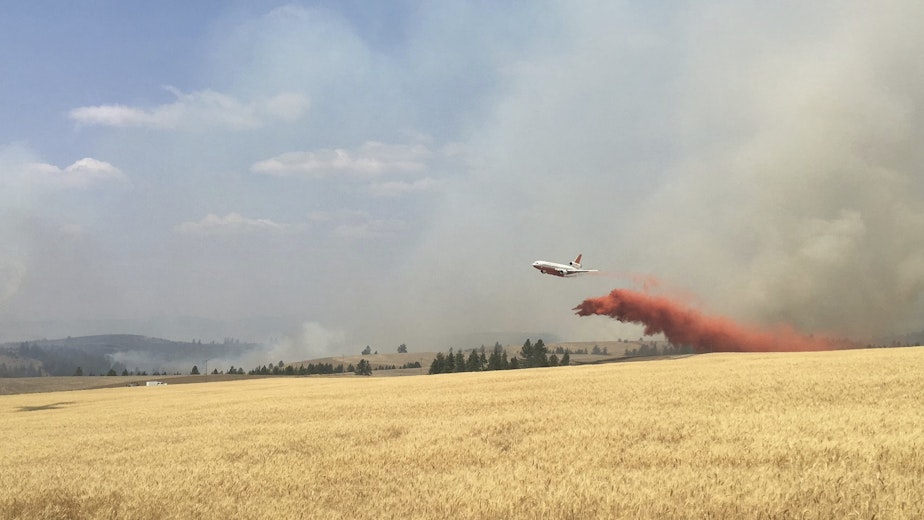State of emergency declared over Washington state wildfires

Washington state Gov. Jay Inslee has declared a state of emergency over growing wildfires throughout the Northwest.
Fire crews are currently battling a range of wildfires in the Olympic Peninsula, as well as in Central and Eastern Washington.
"Wildfires are threatening the safety and livelihoods of Washingtonians all across the state," Inslee said on Wednesday. "And the COVID-19 pandemic has put additional strain on our resources, as some of our usual support is further limited due to international movement restrictions."
Inslee's emergency proclamation notes that Washington has experienced "abnormally dry weather" and high temperatures since July, which has helped grow the flames and provide fuel for future fires. It also states that resources to fight the wildfires are limited due to the pandemic, which has restricted help from some fire agencies in the region, and across the border in Canada. The order remains in effect until September 30.
The National Guard has been activated to assist in fighting the fires, as well as to help protect "homes, public facilities and utilities, businesses, agriculture and natural resources," according to the governor's office.
“Due to hot, dry conditions and lighting storms, we have fires burning across Washington and existing firefighting resources are at capacity," said Commissioner of Public Lands Hilary Franz, adding that the state trains with the National Guard ahead of wildfire season.
The Ahtanum Ridge fire overlooking the city of Yakima was mostly under control until high winds arrived earlier this week. That fanned the flames and grew the blaze. The fire was contained by noon Monday after burning nearly 6,000 acres of brush and destroying two homes.
That fire was followed by another located south of the city of Granger. Yet another fire currently burns near the Yakima Training Center, threatening nearby homes.
Many other areas of Washington share the same conditions as the Yakima region, which has officials watching closely for smoke.

